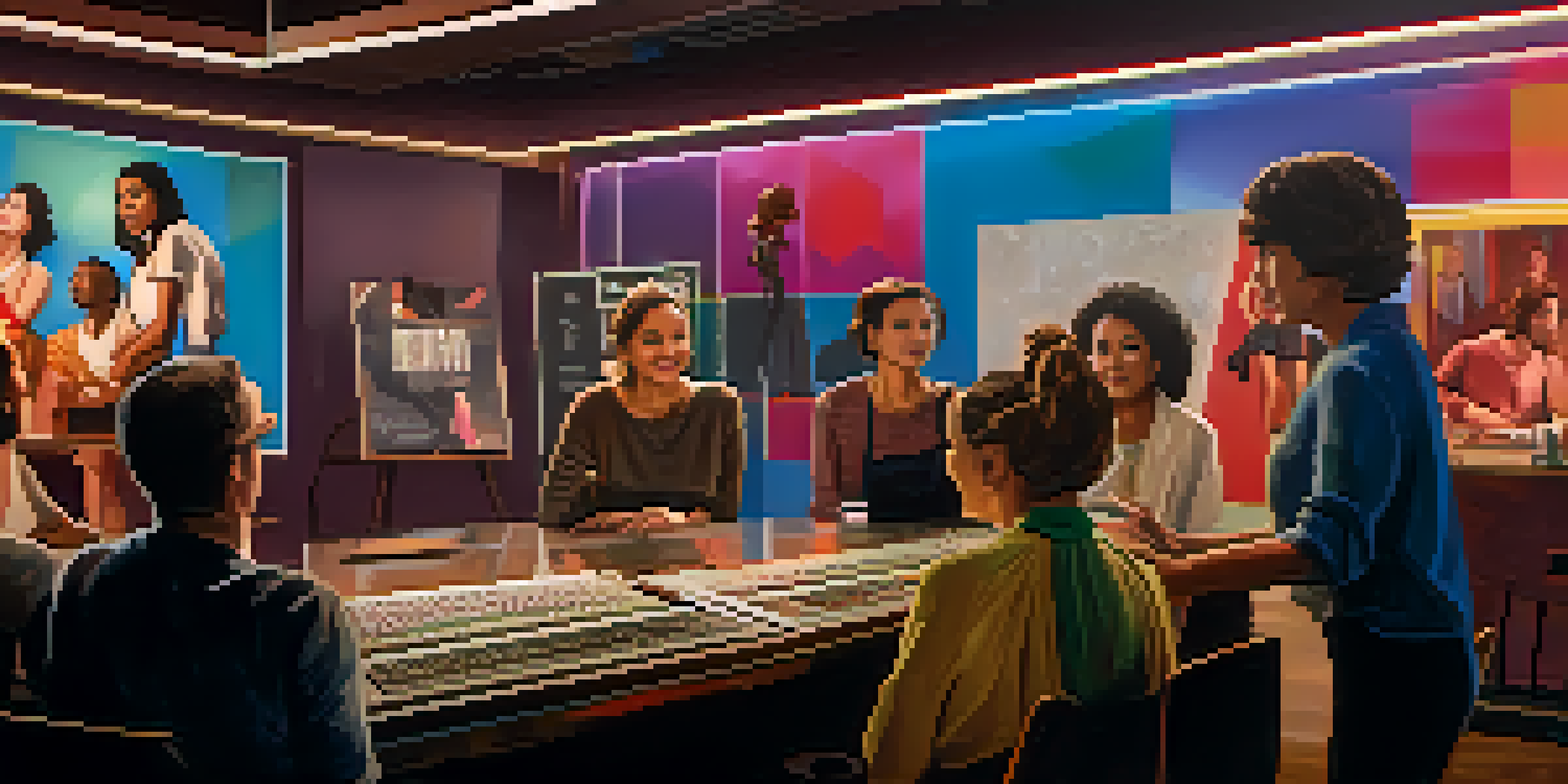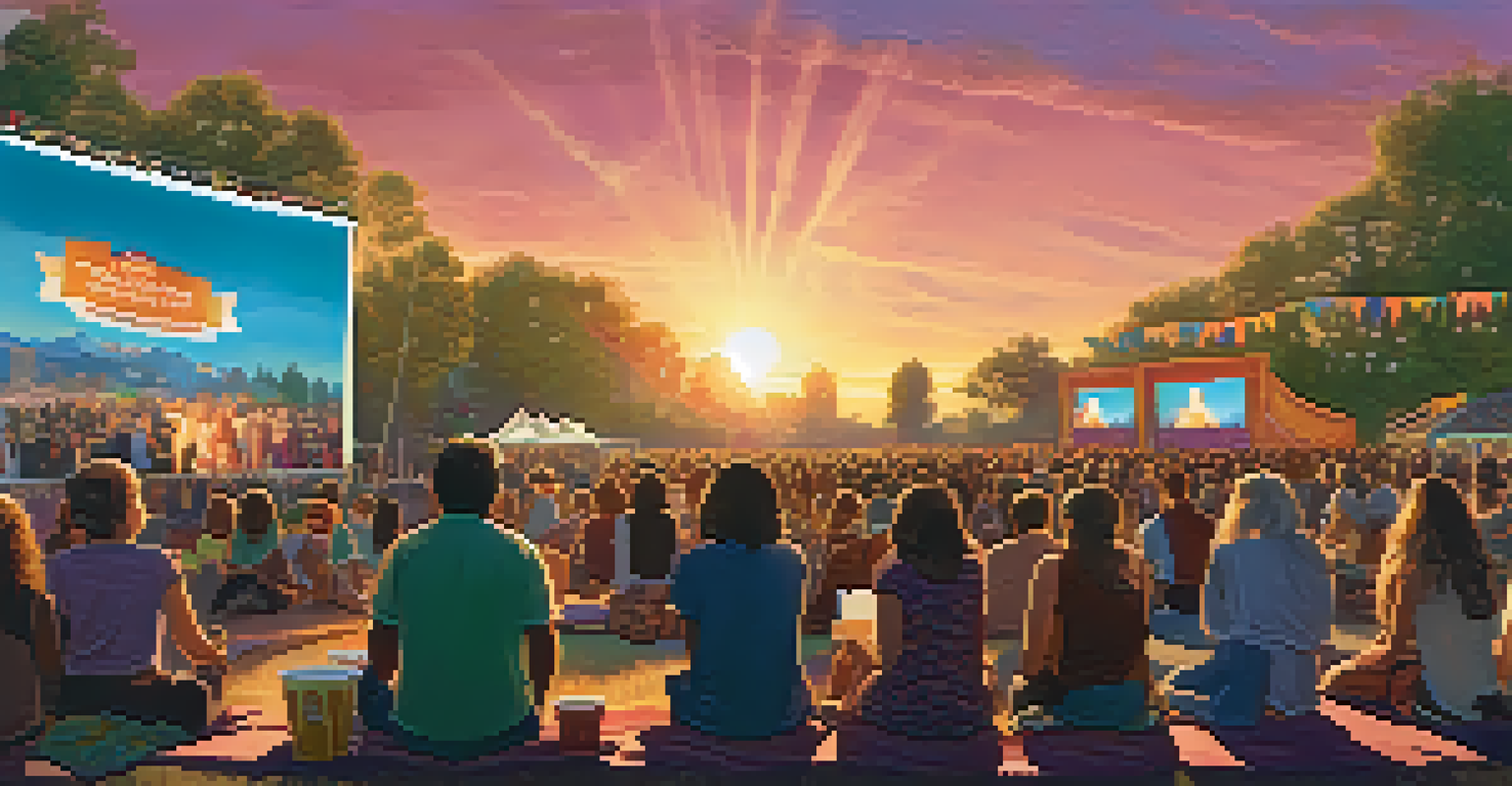Film and Feminism: The Impact of Female Directors Today

The Changing Landscape of Film: A Feminist Perspective
Over the past few decades, the film industry has seen significant changes, particularly in how female directors are perceived and represented. Historically, women were often sidelined in creative roles, but today, they are breaking through barriers to tell diverse stories. This shift is not just about numbers; it's about the narrative control that female directors now wield, allowing for a richer tapestry of experiences in cinema.
A woman’s place is in the director’s chair.
Films directed by women frequently explore themes of identity, empowerment, and social justice, showcasing perspectives that have long been overlooked. For instance, movies like 'Nomadland' and 'Little Women' not only achieved critical acclaim but also highlighted women’s unique viewpoints. This evolution is crucial, as it helps dismantle long-standing stereotypes and fosters a more inclusive film industry.
As more female directors emerge, they're not just filling quotas; they're reshaping storytelling in ways that resonate with broader audiences. This change invites viewers to engage with narratives that reflect a wider range of human experiences, ultimately enriching the cinematic landscape.
Spotlight on Trailblazers: Female Directors Making Waves
Today, several female directors are making notable contributions to the film industry, paving the way for future generations. Directors like Greta Gerwig, Ava DuVernay, and Chloe Zhao are not just creating impactful films; they are also serving as role models for aspiring filmmakers. Their success stories are powerful reminders that talent knows no gender.

These directors are often recognized for their ability to weave complex, relatable characters into their narratives. For example, Gerwig's 'Lady Bird' beautifully captures the nuances of adolescence, while DuVernay's 'Selma' powerfully depicts historical struggles for civil rights. Such works remind us that cinema is a powerful tool for social change.
Female Directors Reshape Cinema
Women in film are breaking barriers, leading to diverse storytelling and richer narratives.
Moreover, their presence in the industry encourages studios to take greater risks with diverse storytelling. This shift not only benefits the film industry but also enriches cultural conversations around gender, race, and identity.
Breaking Stereotypes: How Female Directors Challenge Norms
Female directors are adept at challenging traditional stereotypes prevalent in film, often flipping the script on familiar narratives. By creating stories that center around strong, multifaceted female characters, they challenge the status quo. This shift allows audiences to see women in roles that are dynamic and complex, rather than one-dimensional.
We need to see women’s stories told in their own voices, not just through the lens of men.
For example, films like 'Birds of Prey' and 'The Farewell' showcase women in diverse roles that defy conventional expectations. These films not only entertain but also provoke thought about gender roles and societal expectations. By presenting strong female leads, these directors are reshaping how women are represented in media.
Additionally, this challenge to stereotypes is not limited to character portrayal; it extends to genre conventions as well. Female directors are increasingly taking on action, horror, and even comedy genres, proving that talent and creativity are not confined to traditional gender roles.
The Role of Representation in Female-Directed Films
Representation in film is crucial, and female directors play a pivotal role in ensuring diverse voices are heard. Their unique perspectives allow for stories that resonate with varied audiences, reflecting the complexities of modern life. When women direct films, they often bring forth narratives that spotlight the experiences of marginalized groups.
For instance, films like 'The Hate U Give' and 'Coco' address important social issues while celebrating cultural identities. These narratives foster empathy and understanding, bridging gaps between different communities. As audiences engage with these stories, they are encouraged to reflect on their own beliefs and biases.
Trailblazers Inspire Future Filmmakers
Successful female directors like Greta Gerwig and Ava DuVernay serve as role models, encouraging new talent in the industry.
Furthermore, representation matters not just onscreen but behind the camera as well. When women are involved in writing, directing, and producing, the stories told are more likely to represent a wider array of life experiences, enriching the film industry as a whole.
Impact of Female Directors on Audience Engagement
The rise of female directors has a profound impact on audience engagement, encouraging viewers to connect with films on a deeper level. Films led by women often invite audiences to explore themes of resilience and empowerment, drawing in a diverse demographic. This connection is particularly evident in the way stories are crafted, focusing on emotional depth and character development.
For example, films like 'Wonder Woman' and 'The Piano' have not only captivated audiences but also sparked conversations about gender roles and empowerment. They invite viewers to reflect on their own experiences and challenge societal norms. This emotional engagement is vital in fostering a loyal and passionate audience.
Moreover, the success of these films demonstrates that stories centered around women's experiences can resonate universally. As more female directors gain recognition, their influence encourages a shift in how stories are told, ultimately enriching the film-going experience.
Industry Support for Female Filmmakers: Progress and Challenges
While the film industry has made strides in supporting female filmmakers, challenges still persist. Organizations and initiatives aimed at promoting women in film have gained momentum, providing valuable resources and networking opportunities. However, the journey towards true equality is ongoing, as female directors still face obstacles in securing funding and recognition.
For instance, initiatives like 'Women in Film' and 'The Geena Davis Institute on Gender in Media' are actively working to address these disparities. They provide mentorship programs and funding opportunities to empower women in the industry. Yet, despite these advancements, female directors often encounter biases that can hinder their projects.
Representation Enhances Film Impact
Diverse perspectives in female-directed films foster empathy and reflect the complexities of modern life.
To foster lasting change, industry stakeholders must continue to advocate for equitable practices and support diverse storytelling. By addressing these challenges head-on, we can create an environment where female filmmakers thrive, ultimately benefiting the entire film industry.
The Future of Film: Embracing Female Direction
The future of film looks bright as we continue to embrace the contributions of female directors. Their unique perspectives and storytelling abilities are reshaping the cinematic landscape, making it more inclusive and representative. As audiences demand more diverse narratives, female filmmakers are poised to lead the charge.
With emerging talents and seasoned directors alike, we can expect to see a wealth of stories that challenge conventions and broaden our understanding of the human experience. This shift not only enriches our cultural narratives but also inspires future generations of filmmakers to pursue their passions.

As we celebrate the achievements of female directors, we must also commit to supporting their initiatives and advocating for equal opportunities. By championing their work, we contribute to a film industry that reflects the diversity of our world, ensuring that all voices are heard and valued.